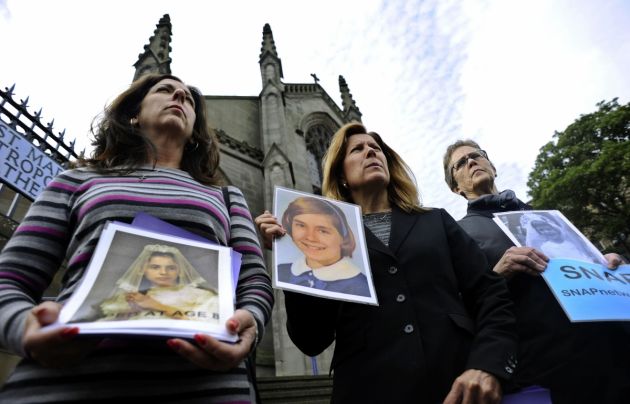Holy See faces grilling over child abuse before UN rights body

GENEVA - The Vatican has endured an unusual grilling at the United Nations when it was forced to speak publicly about allegations that its actions protecting predator priests fueled child abuse.
The questioning came when Monsignor Silvano Tomasi, the head of the Holy See delegation at the United Nations in Geneva was delivering a report to the Committee on the Convention of the Rights of the Child on Thursday.
Mexican Catholics on Friday welcomed questioning of the Vatican by the committee, hoping it will spur greater accountability and prosecutions of priests found to have committed acts of abuse, Reuters news agency reported.
The Catholic Church ratified the UN Convention on the Rights of the Child in 1990 but has not provided required progress reports in recent years.
The Vatican was accused of a lack of transparency on the issue of child abuse by U.N. rights officials and its represeentatives faced questions for almost six hours.
Tomasi said in his report delivered at the Palais Wilson in Geneva, "There is no excuse for any form of violence or exploitation of children.
"Such crimes can never be justified, whether committed in the home, in schools, in community and sports programs, in religious organizations and structures. This is the long-standing policy of the Holy See."
It was the first time the Vatican had been placed under such a public spotlight to allegations that have come from mainly from child-abuse support groups in the past
SWEPT UNDER THE CARPET
Over more than two decade the Catholic Church has faced accusations that it swept under the carpet cases of child abuse in the United States, Europe, Australia and other places by clergy and that it even allowed predators to continue caring for children in some cases.
Vatican officials denied the allegations arguing that the Vatican has clear guidelines to protect children from predator priests.
The U.N. committee's main investigator, Sara Oviedo, grilled the Vatican on the alarming frequency in which abusive priests had been moved to different areas rather than turned over to police.
"The Holy See has not established any mechanism to investigate those accused of perpetrating sexual abuse, nor to prosecute them," she said.
Oviedo noted the Catholic Church's "zero tolerance" policy, asking therefore why it engaged in "efforts to cover up and obscure these types of cases?"
Maltese bishop Monsignor Charles Scicluna, the Vatican's former chief sex crimes prosecutor, denied that the Holy See is engaged in cover-ups.
"Our guideline has always been that domestic law of the countries where the churches operate needs to be followed," he said.
Kirsten Sandberg, chair of the 18-strong U.N. committee, however, told the Vatican delegation, "The best way to prevent abuses is to reveal old ones - openness instead of sweeping offences under the carpet.
"It seems to date your procedures are not very transparent."
Archbishop Tomasi said that the Holy See welcomed any suggestions, which could help it in protecting children.
He cited the U.N. report on Violence Against Children, issued in 2006, which he ssaid cited shocking WHO estimates that 150 million girls and 73 million boys under 18 "experienced forced sexual intercourse and other forms of sexual violence involving physical contact."
He said that abusers are found among members of the world's most respected professions, "most regrettably, including members of the clergy and other church personnel."
Barbara Blaine, president of the Survivors Network of Those Abused by Priests (SNAP), based in the United States said the Vatican response did not meet what victims want.
"What we want to see is the Vatican punish bishops who covered up sex crimes, and we want them to turn over information they have about crimes to police," she said.
Abuse victim support groups were angered when they said that last month the Vatican refused to answer the U.N. committee's written questions in advance, citing confidentiality and saying that responsibility for dealing with abusers is in the hands of local bishops.